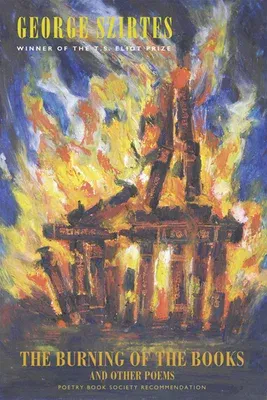The title-poem of George Szirtes' "The Burning of the Books and Other
Poems" is the core of this collection of narrative sequences by a writer
who came to Britain as a child refugee after the Hungarian Uprising.
Book burning is associated with the Nazis' burning of what they
considered to be subversive books in 1933, but the practice has a long
history, right down to our own day. In this particular case the burning
refers to the library of Kien, the scholar, in Elias Canetti's novel
"Auto Da Fé". The poems follow and expand from the events of Canetti's
book in a variety of forms not previously used by Szirtes. Two further
sequences are concerned with history and documentary, one about the
discovery of small snippets of film recording the liberation of Penig
concentration camp where Szirtes' mother was imprisoned, and another of
songs concerning war and documentary photography. There are also prose
poems, monologues, a series of canzoni, a group of poems exploring the
origins of love in childhood, and another based on the mythical travels
of Sir John Mandeville about the Hungarian Uprising of 1956. The book,
as a whole, constitutes an exploration of the range and flexibility of a
voice attuned to the patterns of history and the way such patterns
transform our sense of the present. Poetry Book Society Recommendation,
shortlisted for the T.S. Eliot Prize.

